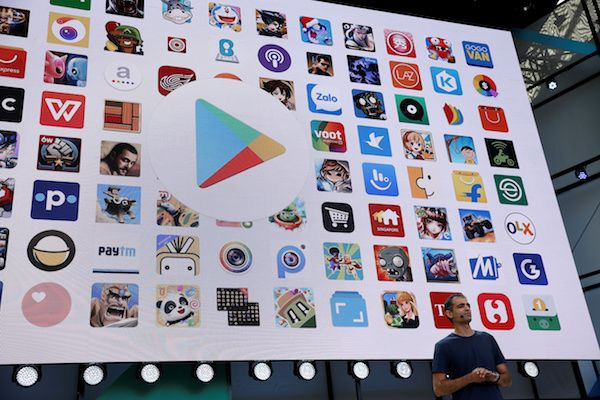Google Follows Apple’s App Store Cleanup In Updated Developer Policy

Google is banning numerous apps that are violating its updated Developer Policy. The move is seen as Google’s way of following in Apple’s footsteps when it comes to dealing with apps that have questionable activities.
Android Police reported Friday that Google is cracking down on the apps published on its Play Store service. The Mountain View giant released an updated version of its Developer Policy this week, and the update indicates that Google is banning a wider range of apps this time around.
Affected in Google’s surprising move are apps for cryptocurrency miners and those that sell firearms and accessories. Apps that trick kids into downloading adult-themed apps will also be banned. Google is also banning apps built using automated tools or wizard services, or those that are based on templates.
Google’s move channels what Apple did to its App Store, specially the latter part. Last December, the Cupertino giant updated its App Store guidelines to include a rule that enables the banning of apps made using “commercialized template or app generation service.”
Apple came up with the new rule because most apps that are created using templates and wizards lead to spam apps. However, its decision was also met with a lot of backlash, considering that small businesses rely on templates and app generation services to come up with their own apps.
The backlash caused Apple to revise the rule, such that it would only be applicable to developers attempting to spam the App Store with multiple copies of the same type of app. Since Google is doing the same thing now, it chose to reflect Apple’s revised rule only, as per TechCrunch.
“Apps that are created by an automated tool, wizard service, or based on templates and submitted to Google Play by the operator of that service on behalf of other persons are not allowed. Such apps are only permissible if they are published by an individually registered developer account belonging to the user of the automated tool, not the operator of the service,” an excerpt from Google’s updated Developer Policy reads.
Google’s move to clean up its Play Store is very timely, knowing that a large number of apps on its digital distribution service are considered malicious. For years, the company has also been more lenient when it comes to dealing with spam apps than the Cupertino giant.
© Copyright IBTimes 2025. All rights reserved.





















